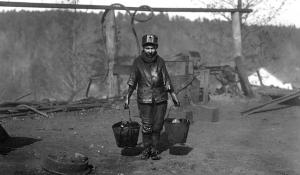
In a globalized economy, it can be difficult for consumers to track the supply chain behind the shoes and other products they buy. Unfortunately, oppressive labor conditions and the problems of sweatshops and child labor still exist.
Child Labor at Puma
In June of 2008, for example, China Labor Watch reported on poor conditions at a factory producing high-end Puma shoes for American retailers. Thousands of workers at the Dongguan Surpassing Shoe Co. Ltd. were routinely forced to work overtime, laboring 12 hours a day on weekdays and sometimes overnight on Saturdays. They are routinely exposed to toxic chemicals without the use of any safety equipment; and workers live in cramped dormitories strewn with garbage, where more than 80 people share a single bathroom. These Puma workers are paid 64 cents an hour; and are frequently fined if they refuse to take on overtime shifts.
Take Action Against Child Labor
- Demand corporate responsibility. If a company can’t or won’t share specifics about how its products are made or where they come from, it is not doing enough to stop sweatshops and replace them with safe workplaces that pay a living wage.
- Vote with your dollar. Find responsible companies with transparent supply chains, and reward them with your business. Buy Fair Trade to ensure your purchases aren’t funding exploitative labor practices. And look for the union label when you shop; unions are key to protecting workers’ rights. Remember, you can buy used items, too.







